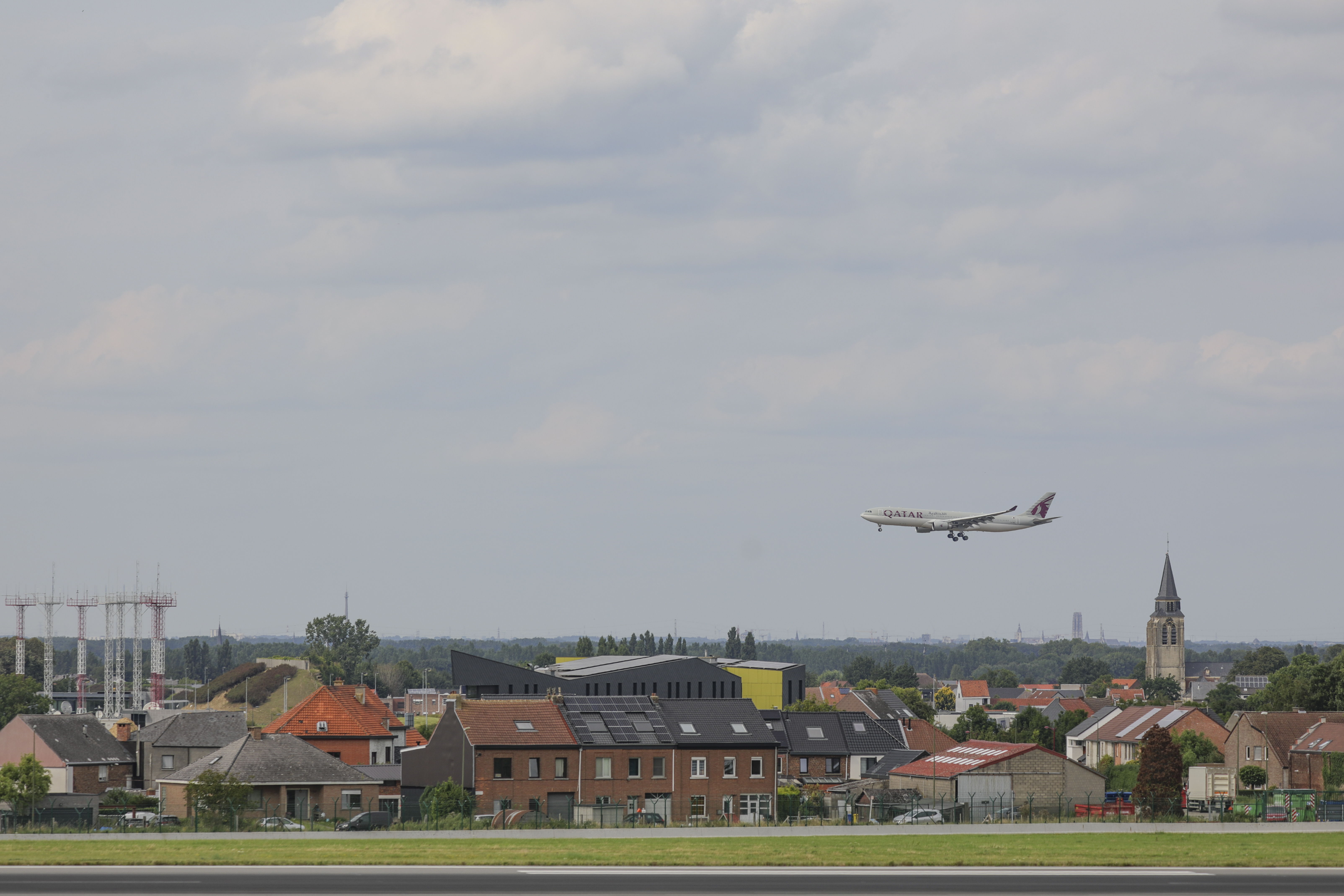Brussels Airport noise disturbance will decrease by 2032, environmental impact report says

Despite the predicted growth in passengers and cargo, the noise impact of Brussels Airport will decrease in the coming years. By 2032, the number of potentially highly inconvenienced residents could be reduced by 12 per cent. This was reported on Tuesday in the environmental impact report that accompanies the application Brussels Airport must submit to the Flemish government for a new environmental permit.
The Energy Information Administration (EIA) examined the current environmental effects based on data from 2019 and a realistic future scenario within the existing infrastructure. That scenario assumes 32 million passengers and 1 million tonnes of cargo will be flown in 2032.
As for noise, the report shows that the number of people potentially disturbed will decrease by 12 per cent "despite the expected population growth around the airport". By 2032, 63 per cent of flights would be operated with the most modern noise-efficient aircraft, compared to 31 per cent today, and would use modern, quieter landing techniques that emit less CO2.
'Mild impact on pollutants'
In terms of air quality and emissions, the EIA predicts that the expected growth will have "a mild impact" on certain pollutants. The emissions dispersed by transport that can affect humans, animals, plants and buildings would remain below the applicable air quality standards. The airport operator says it will reduce scope 1 emissions and scope 2 emissions to 0 by 2030.
The Greenhouse Gas Protocol, the global standard framework for measuring greenhouse gas emissions, divides companies' emissions into three scopes. Scope 1 refers to emissions from a company's own activities. For example, Brussels Airport replaced its company fleet with electric cars. Scope 2 refers to the indirect emissions from a company's purchased energy. The airport announced in May that the terminal buildings must be heated without CO2 emissions by 2027 and, therefore, no longer with gas.
Scope 3 refers to all other indirect emissions from a company's activities, such as transport or outsourced production. In the case of Brussels Airport, this concerns the emissions from aircraft and ground handling equipment. The airport says that CO2 emissions from aircraft operations will also decrease due to further fleet renewal and the use of biofuels. By 2026, 5 per cent of the aviation fuel at the airport must consist of sustainable aviation fuels.
Environmental factors
The EIA confirms that the airport contributes to nitrogen deposition in nearby nature reserves. According to Brussels Airport, nitrogen emissions from airport activities in Flanders remain within the limit provided for in the nitrogen agreement, and the emissions do not prevent the achievement of the Flemish nitrogen targets.
The experts recommend that the airport operator consult with the protected Natura 2000 areas to investigate measures. "Brussels Airport will take this up with the nature managers and see what role the airport can play in this," the agency said on Tuesday.
Brussels Airport said it had already taken measures to limit its environmental impact in recent years. For example, the number of potentially inconvenienced local residents has fallen by 57 per cent since 2000.
The EIA indicated two zones where additional sound barriers could be installed and will conduct a feasibility study starting in 2024. A new test location with noise barriers should be operational by 2027.
Brussels Airport's current environmental permit for operating the airport expires in July 2024. Its application to the Flemish government involves a public inquiry, which started on Sunday. The operator previously said the application was about "renewing the existing permit for operating the airport within the current sites and infrastructure and under the current conditions". There are currently no bids for further modification, such as adding a new runway or additional flights.
#FlandersNewsService | © PHOTO BELGIAN FREELANCE
Related news

